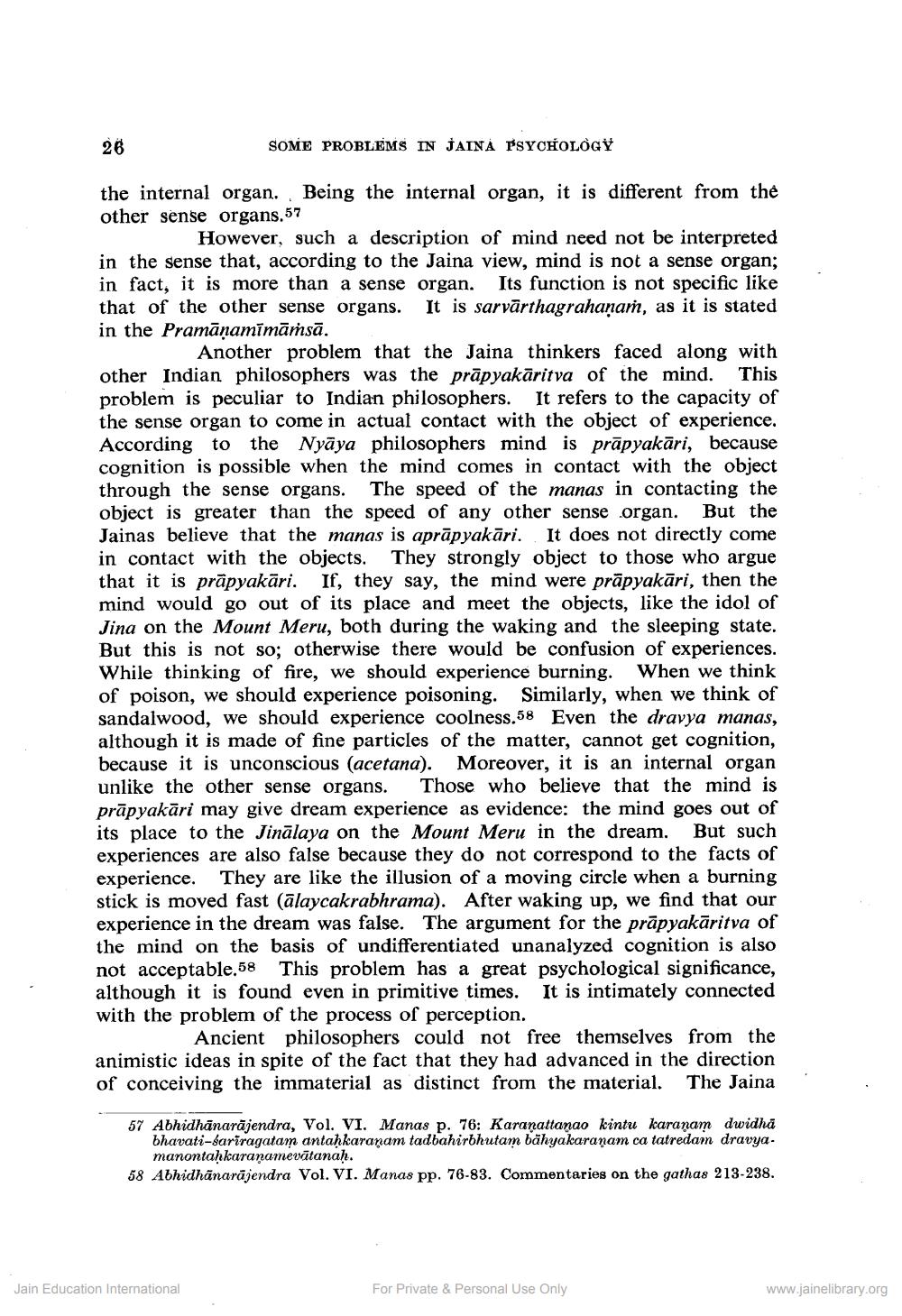________________
26
SOME PROBLEMS IN JAINA PSYCHOLOGY
the internal organ. other sense organs.57
Being the internal organ, it is different from the
However, such a description of mind need not be interpreted in the sense that, according to the Jaina view, mind is not a sense organ; in fact, it is more than a sense organ. Its function is not specific like that of the other sense organs. It is sarvarthagrahanam, as it is stated in the Pramāṇamīmāṁsā.
Another problem that the Jaina thinkers faced along with other Indian philosophers was the prapyakāritva of the mind. This problem is peculiar to Indian philosophers. It refers to the capacity of the sense organ to come in actual contact with the object of experience. According to the Nyaya philosophers mind is prāpyakāri, because cognition is possible when the mind comes in contact with the object through the sense organs. The speed of the manas in contacting the object is greater than the speed of any other sense organ. But the Jainas believe that the manas is aprāpyakāri. It does not directly come in contact with the objects. They strongly object to those who argue that it is präpyakāri. If, they say, the mind were präpyakāri, then the mind would go out of its place and meet the objects, like the idol of Jina on the Mount Meru, both during the waking and the sleeping state. But this is not so; otherwise there would be confusion of experiences. While thinking of fire, we should experience burning. When we think of poison, we should experience poisoning. Similarly, when we think of sandalwood, we should experience coolness.58 Even the dravya manas, although it is made of fine particles of the matter, cannot get cognition, because it is unconscious (acetana). Moreover, it is an internal organ unlike the other sense organs. Those who believe that the mind is prāpyakāri may give dream experience as evidence: the mind goes out of its place to the Jinalaya on the Mount Meru in the dream. But such experiences are also false because they do not correspond to the facts of experience. They are like the illusion of a moving circle when a burning stick is moved fast (alaycakrabhrama). After waking up, we find that our experience in the dream was false. The argument for the prapyakāritva of the mind on the basis of undifferentiated unanalyzed cognition is also not acceptable.58 This problem has a great psychological significance, although it is found even in primitive times. It is intimately connected with the problem of the process of perception.
Ancient philosophers could not free themselves from the animistic ideas in spite of the fact that they had advanced in the direction of conceiving the immaterial as distinct from the material. The Jaina
57 Abhidhanarajendra, Vol. VI. Manas p. 76: Karanattanao kintu karanam dwidhā bhavati-sariragatam antaḥkaranam tadbahirbhutam bähyakaranam ca tatredam dravyamanontaḥkaranamevātanaḥ.
58 Abhidhanarajendra Vol. VI. Manas pp. 76-83. Commentaries on the gathas 213-238.
Jain Education International
For Private & Personal Use Only
www.jainelibrary.org




